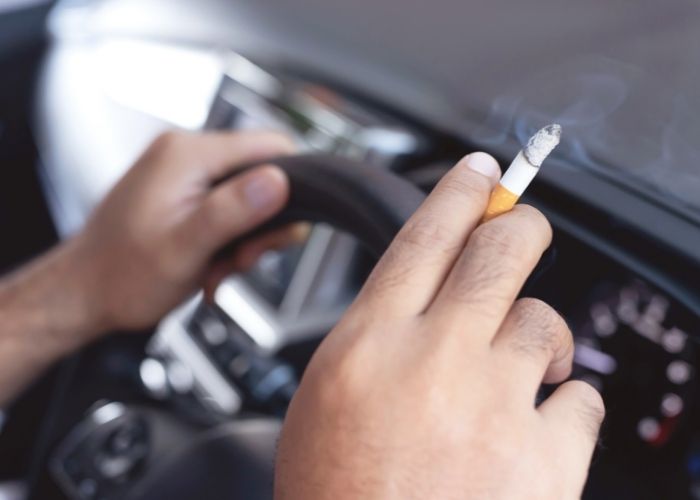MADRID – Spain is one of the few European countries where there are no fines for smoking in cars with minors or pregnant women in them. Currently, the Spanish traffic law allows you to smoke in your car, but the Ministry of Health wants to ban it.
More than two years ago, a survey by the Spanish Association of Family and Community Medicine found that eight out of ten Spaniards agreed to ban smoking in cars when children are travelling, while only 54% would agree to the ban, regardless of which travellers would be in the vehicle.
However, nothing new has been included in the reform of the traffic law on this point. The ball is now rolling towards the Ministry of Health and an anti-smoking law reform already in the works.
Wednesday, December 15, is the deadline for Autonomous Communities to send their allegations against the law reform of the ministry led by Carolina Darías. In 100 pages it is proposed, among other things, to completely ban tobacco from passenger cars. This is in addition to numerous measures in all areas, including a smoking ban on terraces in the catering industry. So far, the law has had full support from anti-smoking associations.
Distraction behind the wheel
In Spain, you are generally allowed to smoke behind the wheel. While the fines for using your cell phone have been increased in the traffic law. However, other things that can distract your attention behind the wheel are overlooked. According to studies regularly published by the Spanish Traffic Service DGT, lighting a cigarette while driving takes 4.1 seconds during which you pay less attention to the road. This translates as;
- 130 metres if you drive at 120 km/h
- 113 metres if you go to 100 km/h
- 100 metres if the speed is 90 km/h.
Bringing the vehicle to a complete stop at that distance requires a very high reaction time and braking quality. And also with a clear risk of an accident.
Will Spain ban smoking in cars and on terraces?
But there is more disturbing data. The average time to smoke a cigarette is between three and four minutes, travelling about 6 kilometres at 100 km/h. While smoking, the hand holding the cigarette does not allow a full grip on the steering wheel. This means a significant increase in the risk of accidents. There is also distraction time when searching and storing the pack, taking the cigarette from the pack, and tapping the ash into the ashtray. In addition, the risk of fire is increased by 50%. And the possibility of cigarette ash falling on the driver or seat creates dangerous situations, especially at high speed.
Proposal smoking ban in car
Based on these reasons and based on verbatim quotes from the DGT (“smoking is one of the most common distractions among drivers”), the political party EH Bildu proposed in the Senate to add a paragraph to Article 13 which would categorically prohibit smoking in a car, both for road safety reasons, the health of the passengers and to reduce the risk of fire. But that change was not considered by the majority of the Spanish parliament.
New traffic law
The new traffic law will be applied in its entirety from March. And the offence for throwing a cigarette butt out of the window is classified as very serious. Mainly because of the high risk of causing a fire.
In Spain it is therefore not prohibited according to the traffic law to smoke behind the wheel. There is, however, the possibility that a traffic police officer will impose a sanction on the driver if his smoking behaviour has endangered road safety.
Spanish catering industry furious about smoking ban on terraces
It is not easy for the traffic police to notice this. Even when it is noticed, a high degree of subjectivity remains.
In Spain, smoking in the car if minors or pregnant women are in it is not punishable, unlike other European countries. This includes sanctions in France, Italy, the United Kingdom, Ireland, Germany, Austria or Greece (all if there are minors or pregnant women) and in the Netherlands (only if the car is a workplace).


